
AIA NRW, Katja Velmans
Fellows
-

 International RelationsSubnational Diplomacy
International RelationsSubnational DiplomacyDébora Prado
A Comparative Analysis of the International Actions of Subnational Governments in Brazil and Germany
To profile
This project examines how regional governments in Brazil and Germany engage internationally and why their actions matter for global debates. It focuses on two key areas: the global COVID-19 pandemic and environmental diplomacy. The study explores how subnational actors build partnerships, influence policy, and expand their presence beyond national borders, highlighting the growing relevance of subnational diplomacy in International Relations. -

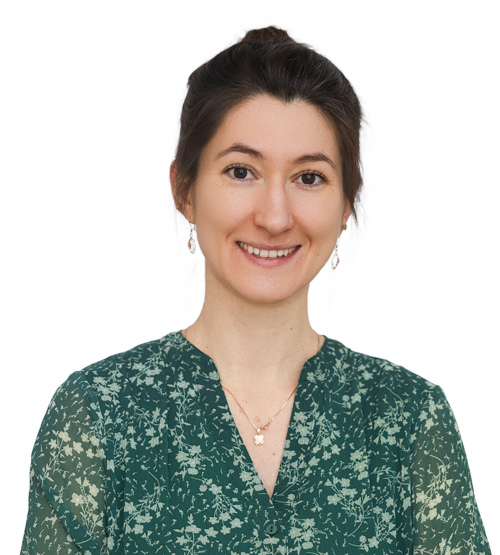 International Relations
International RelationsKarolina Kluczewska
Geopolitical Reorientations in Central Asia
To profile
Since the Soviet collapse, Central Asian states have been largely oriented towards Russia, seeing it as a reference point in foreign and domestic policies. Russia was even attributed with a status of a “strategic partner”. This suddenly changed with Russia’s invasion of Ukraine in 2022 which prompted Central Asian policymakers, businesses and civil society to look for new, more reliable partners in Asia, Europe and the Middle East. Using a critical geopolitics lens, my project analyses the new “strategic” partnerships emerging in the region. It investigates actors and rationalities of the ongoing geopolitical reorientation, as well as formal and informal practices characterising this process. -

 International RelationsSubnational Diplomacy
International RelationsSubnational DiplomacyStuart MacDonald
Sub-national Soft Power: Policy, Strategy, and Measurement
To profile
This fellowship programme will examine soft power dynamics across governance levels, from national frameworks through regional cooperation to urban cultural diplomacy. The research will build upon a recently completed comparative study for the British Council of the soft power policies, infrastructures and outcomes of 24 countries and the European Union, developing innovative methodological approaches for measuring and comparing soft power effectiveness across different governance contexts.
-

 Political ScienceAssociate Fellow
Political ScienceAssociate FellowTamara Ehs
European Capital of Democracy
To profile
Democratic, smart, resilient: Cities play a crucial role for the UNs’ SDGs. From ancient Athens to renaissance Florence and Frankfurt, cities were incubators of democracy. And today, while national governments seem to be failing to meet people’s expectations, leading to a tide of authoritarian sentiment, cities once again emerge as strongholds for safeguarding democracy. Based on the European Capital of Democracy initiative the project focuses on urban diplomacy for shaping a democratic future. -

 International Politics
International PoliticsMartin Weber
Solidarist Transnational Localism
To profile
Social tensions and ecological stresses are on the rise today simultaneously. Increasing social Integration appears to depend on accelerated economic growth; and accelerating economic growth appears to hasten ecological crises. This problem is global, with distinctive local expressions; yet, today the International Institutional preconditions for coordinated responses are manifestly failing. His project surveys transnational solidarity networks that model workable alternatives.
-

 Conflict StudiesPeace StudiesSecurity Studies
Conflict StudiesPeace StudiesSecurity StudiesSummar Iqbal Babar
The Kartarpur Corridor
To profile
This research examines the Kartarpur Corridor as a transformative model of trans-local and sub-national diplomacy between India and Pakistan. Connecting shared religious and cultural heritage, it fosters peace through people-to-people contact, emotional healing, and spiritual engagement. Despite structural challenges like political volatility, restricted access, and administrative barriers, the Corridor offers a counter-narrative to hostility. With institutional support and integration into broader cultural diplomacy frameworks, it holds the potential to become a lasting symbol and mechanism of cross-border peace, unity, and reconciliation in South Asia. -

 EconomicsAssociate Fellow
EconomicsAssociate FellowJohn Austin
Spreading Opportunity – Strengthening Democracy
To profile
During my tenure at the NRW Academy of International Affairs, I will build out Heartlands Transformation Network, conduct and deliver additional original research and insights into effective economic regeneration of heartland regions, and address key issues confronting policy makers and economic development and structural change managers in countries of North America and Europe. All designed to spread economic opportunity and strengthen democracies and our transatlantic alliance. -

 MigrationAssociate Fellow
MigrationAssociate FellowChisomo Banda
Youth Perspectives on International Migration Policies
To profile
The research will explore the nuanced experiences and views of young people in relation to existing international migration policies. It will further identify the unique challenges they face, such as disrupted education and social exclusion, and to offer recommendations for more inclusive and effective migration frameworks that are in favour of young people. The ultimate goal is provide valuable insights for improving policies to better address the needs of young migrants. -

 International RelationsAssociate Fellow
International RelationsAssociate FellowChiung-Chiu Huang
De/securitizing China: The Impacts of Security Community on States’ Strategic Assessments
To profile
This research explores how regional security communities shape national strategies in response to global challenges. By comparing Germany (EU/NATO) and Vietnam (ASEAN), it examines how these groups influence members’ views on threats and change. The findings will enhance understanding of diverse multilateralism and how nations adapt amid great power rivalries, offering insights for both scholars and policymakers. -

 Chinese PoliticsAssociate Fellow
Chinese PoliticsAssociate FellowAnna Shpakovskaya
The Changing Logic of China’s Strategic Subnational Diplomacy: The Case of the Sino-German City Partnership in NRW
To profile
This project explores the evolving strategies of Chinese subnational diplomacy, with a particular focus on city partnerships between Chinese cities and those in North Rhine-Westphalia, Germany. By analysing the driving forces, key actors, practices, and intercity dynamics within China’s urban clusters (城市群), the study highlights the interplay between domestic priorities and international imperatives in shaping China’s global diplomatic agenda. The study emphasises that these city-to-city partnerships function as microcosms of broader geopolitical and socio-economic trends, exerting influence on EU-China relations and contributing to the reconfiguration of global governance frameworks. By situating city diplomacy within the context of China’s global rise, this project illuminates how subnational cooperation complements and enhances China’s state-led diplomatic efforts, offering a nuanced perspective on the intersection of local and global political processes. -

 Political ScienceAssociate Fellow
Political ScienceAssociate FellowBernhard Stahl
When foreign policy does not speak – the silencing of mass atrocities in foreign policy
To profile
The research project aims to investigate the under-theorized concept of silence within the realm of foreign policy analysis, particularly concerning the silencing of mass atrocities. This project seeks to address the gap in social-constructivist foreign policy research by examining how silence operates and its implications for foreign policy decisions and discourse. The research is motivated by the observation that, despite the widespread acceptance of silence as a significant factor in political science and related social sciences, it has not been adequately explored within foreign policy analysis. The project posits that foreign policy silence does not merely equate to the absence of speech but includes the strategic omission or downplaying of critical issues. This form of silence can shape perceptions and policies in profound ways, often leaving significant matters unaddressed. The project’s theoretical framework challenges the prevailing logocentric focus on articulated language in foreign policy studies. By incorporating silence into the analysis, the studies aim to provide a more holistic understanding of foreign policy. This approach will involve the conceptualization of silence, distinguishing between different types of silence such as imposed silence (resulting from violence or institutional constraints) and purposive silence (intentional non-communication). Empirically, the project will focus on the foreign policies of Germany, France, the United Kingdom, and the United States. This comparative case study will explore how these democracies, which theoretically should engage in open discourse on such severe crimes, often remain silent. By analyzing this silence, patterns and motivations behind the lack of articulation in foreign policy regarding mass atrocities will be uncovered. -

 International RelationsAssociate Fellow
International RelationsAssociate FellowAdam Bower
Governing outer space security: assessing opportunities and challenges
To profile
Outer space technologies—rockets, satellites, and their supporting terrestrial infrastructure—are critical enablers of modern information-centric societies, with applications ranging from intelligence collection, nuclear early warning, and targeting precision-guided weapons to telecommunications and the internet, mapping and geolocation, environmental monitoring, and weather forecasting. Space systems thus contribute to forms of military, environmental, and human security and are increasingly understood to constitute a key element of national defence and economic power. At the same time, leading space powers are developing counterspace capabilities to threaten adversaries’ satellites. There are widespread concerns that outer space governance is insufficient to manage these security challenges, with significant ambiguities and gaps in existing rules. Fundamental obstacles include competing approaches led by China and Russia and the US and other Western states, respectively, with corresponding risk of the fragmentation of space governance.
My research examines the status and potential trajectories of outer space governance, specifically concerning the characterisation and regulation of military space operations. I theorise the processes through which international norms and legal rules are promoted and resisted and collect empirical data to assess the nature and extent of such change. My fellowship will be dedicated towards advancing two related projects. First, I examine how the unique physical properties of Earth orbit enable and constrain the use of space technologies for (terrestrial) security missions. Second, I identify mechanisms and processes through which norms regulating military space activities may emerge and transform. My overarching goal is to better integrate outer space into the study of global politics and generate new academic knowledge which can in turn inform policy deliberations among governmental, non-governmental, and commercial space actors aimed at preventing armed conflict in outer space.
-

 Peace StudiesPolitical ScienceAssociate Fellow
Peace StudiesPolitical ScienceAssociate FellowMariia Levchenko
Understanding National Dialogues: Exploring Features, Challenges, and Implications for Political Transitions and Sustainable Peace
To profile
National Dialogues have increasingly become vital for managing political transitions and fostering sustainable peace worldwide. This research project seeks to understand the effectiveness of National Dialogues by examining cases in Chad and the potential for such a process in Ukraine. By analyzing both the political and procedural elements, along with the contextual factors that influence outcomes, this study aims to provide a nuanced understanding of how these inclusive dialogues can resolve conflicts and support post-conflict/war recovery.In 2022, Chad implemented a National Dialogue involving diverse stakeholders—from the ruling junta to civilian groups—which aimed to enhance national cohesion and lay foundations for a peaceful future. However, the effectiveness of this dialogue hinges not just on its conduct but also on the ongoing engagement and implementation of agreements. Similarly, Ukraine, which is currently fighting an invasion and considering the implementation of a Peace Plan formula, presents a unique scenario to explore the potential and challenges of initiating a National Dialogue there. The anticipated comparative analysis will highlight common features, challenges, and lessons from both contexts, offering insights beneficial for other regions experiencing political upheaval. -

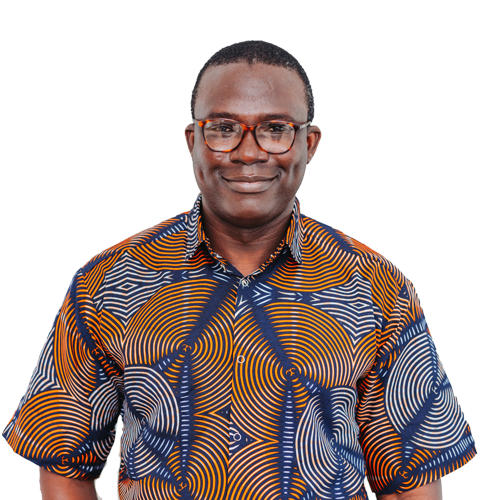 EconomicsAssociate Fellow
EconomicsAssociate FellowAbiodun Egbetokun
The Political Economy of Chinese Investments in Africa: Implications for Development
To profile
In recent years, Chinese investments in Africa have surpassed those of traditional Western donors, making China the continent’s largest investor. Chinese foreign direct investments (FDI) offer significant potential for economic growth by providing essential infrastructure, capital, and industrial capabilities. However, the nature and conditions of these investments differ markedly from those of Western donors, often leading to debates on their true benefits and potential drawbacks. China’s approach to aid and investment in Africa, characterised by fewer conditions compared to Western aid, has raised concerns about the long-term implications for governance and economic independence in recipient countries. Critics argue that this “rogue aid” can support corrupt regimes and increase debt burdens, though empirical evidence on these claims is mixed. While some studies highlight the positive impacts of Chinese investments on productivity and industrial growth, others point to negative effects such as heightened competition for local businesses and increased economic dependency.
This project aims to examine the sectoral evolution of Chinese FDI in Africa and its impact on employment, a critical issue given Africa’s high unemployment rates. The project will provide a nuanced understanding of the role of Chinese FDI in Africa’s development. The findings will inform strategies that can better integrate Chinese and Western investments to support Africa’s industrialisation and economic diversification, to maximise the benefits of such investments while minimising potential risks.
-

 International PoliticsAssociate Fellow
International PoliticsAssociate FellowMilla Vaha
From the Nuclear to the Climatic Threat: Existential Insecurities in the Pacific Island Countries
To profile
The research project undertaken by Ms. Milla Vaha delves into the profound impacts of historical nuclear testing and contemporary climate change on the existential security of Pacific Island nations. Spanning from 1946 to 1996, nuclear tests conducted by major world powers have left a lasting legacy on regions such as Kiribati, the Marshall Islands, and Maohi Nui (French Polynesia). This study seeks to elucidate the interconnections between these historical events and the current climate crisis, exploring how the remnants of nuclear activities have shaped these communities’ perceptions of existential threats. The research is structured around pivotal questions addressing the extent to which nuclear testing has influenced the perception of climatic existential threats, how nuclear legacies have informed national and regional security frameworks, and the continuous impacts of vulnerabilities introduced during atomic testing on climate resilience. Through a combination of archival research, interviews, and desk research, the project aims to provide novel insights into the study of existential threats within the realm of International Relations and political practice. It further aspires to offer policy recommendations for addressing losses and damages due to climate change by linking them to the historical responsibilities of nuclear powers. Focusing on three case studies—Marshall Islands, Kiribati, and Maohi Nui—the research highlights the unique vulnerabilities of these small island entities, which have been significantly impacted by their nuclear history. The choice of these cases is justified by their shared experiences as nuclear testing sites and their distinct sovereign statuses, providing a comprehensive understanding of how historical legacies influence current security scenarios and policy responses. The research not only contributes to our understanding of existential threats and security in International Relations but also addresses the broader implications of climate justice and the historical responsibilities of nuclear powers, thereby providing a meaningful framework for compensatory policies for the affected Pacific Island communities. -

 EconomicsSpace PolicyAssociate Fellow
EconomicsSpace PolicyAssociate FellowRaúl González Muñoz
Implementation of the European Union Space Defence & Security Strategy: Key Challenges and Enablers
To profile
This project looks to identify and analyse the key challenges and enablers encountered in the implementation of the European Union Space Strategy for Security and Defence, unveiled on March 10, 2023 by the European Commission and the High Representative (HR) for Foreign Affairs and Security Policy, Josep Borrell.
This project will focus in four main areas: (1) space industrial capacity of the EU; (2) space industry frameworks in Europe compared to USA analogues; (3) space market harmonization in Europe supported by a shared space law; and, (4) space as a vector for European integration.
The final aim of the research is to provide a structured analysis with a particular focus on the industrial capacity of the European space sector compared to other space faring powers, as well as the dynamics of great power competition in space and the role Europe could play in the future geopolitical landscape.
-

 International LawAssociate Fellow
International LawAssociate FellowGüneş Ünüvar
Outer Space as an ‘Environment’: State Regulation and Foreign Investment Protection
To profile
My project explores the conceptualization of outer space as an environment, and its implications for international law, particularly concerning environmental protection and foreign investments. The study aims to reconceptualize outer space, especially Earth’s orbit, as an environmental domain subject to regulatory measures similar to those applied to terrestrial and atmospheric environments. The research is motivated by the rapid growth in both public and private space endeavors, which include satellite operations, space tourism, resource extraction and utilization, as well as potential extraterrestrial settlements. With regard to orbital activities, the focus will be on the accumulation of space debris, presenting significant risks such as orbital collisions, which could eventually render Earth’s orbit unusable—a scenario known as the Kessler Syndrome. Given these concerns, the project examines whether space should be classified as an environment requiring protection.
Through environmental sociology, the project will show that while environmental protection is one aspect of our interaction with outer space, environmental utilization, risk mitigation, scientific engagement, and cultural preservation are parallel manifestations of outer space as environment, and crucial aspects of our engagement with it. Building upon this framework, the project’s key contribution is to show how this taxonomy helps better conceptualize the leeway of states regulating space activities, as well as rules and principles in international law, applicable to environmental protection and policies instigated by states.
A central aspect of this study is the investigation of how categorizing space as an environment influences international investment law, particularly regarding state regulations and their impact on private sector activities. The project posits that space, much like terrestrial and atmospheric domains, can be subject to environmental protection measures which may conflict with commercial interests. This conflict is explored through the lens of international investment agreements (IIAs) and arbitration cases where states have imposed environmental regulations impacting foreign investments.
-

 Political ScienceAssociate Fellow
Political ScienceAssociate FellowTamirace Al Fakhoury
The European Union’s External Refugee Policy in Middle East Geopolitics: Archipelagos of Policy Dissonance
To profile
What does refugee politics reveal about policy dissonance? And how does it enable a nuanced insight into the spatiality and dispersion of power beyond the focus on classical geopolitics? My research project looks at refugee policy in the Euro-Middle East as a messy spatiality of power where asylum policies and bordering practices mutually influence and contest each other. I draw on relational approaches that decenter the focus from EU governance and that conceptualize the political agency of the so-called ‘borderlands. Building on the case of Syrian displacement, I explore how Middle East polities and societies have shaped the EU’s resilience-building discursive practices and externalization strategies of migration control. I further explore what this means for refugees’ rights and protection, and for responsibility-sharing.
The project is structured around four streams:
– How have governments in the Middle East interpreted and enacted the EU’s external refugee instruments? In what ways have their governance legacies, legal frameworks, and economic systems reshaped the EU’s normative and funding power?
– What are the on-the-ground effects of the refugee instruments that have been negotiated, particularly in terms of asylum policy formulation, and the livelihoods and protection of refugees in the region?
– Which “pathways” and “criteria for evaluation” (Young 1978) might clarify the limited impact of the EU’s funding power in addressing prolonged displacement in the Middle East, despite the EU’s declared aims of promoting resilience and joint burden-sharing?
-And (as an avenue for further research), how can the EU and regional host states in the Middle East draw on their contentious cooperation on refugee issues as an opportunity for reflexive and learning-based governance?
-

 Political ScienceAssociate Fellow
Political ScienceAssociate FellowReza Hasmath
How China Currently Sees the World and Implications for Global Actors
To profile
This project looks at how the Chinese citizenry currently think about the world, and its implications for future foreign relations with Western jurisdictions. It draws upon hard to access representative data from the 2023 and 2024 Chinese Citizens’ Global Perception Surveys (CCGPS) conducted by the Investigator. The CCGPS look at mainland Chinese citizens’ perspectives on China’s current relations with global actors, including, Australia, Canada, EU, France, Germany, India, Japan, Russia, UK and USA.
The project will examine four key areas of analytical interest: (1) Chinese citizens’ global perception of trusted partners, and those jurisdictions that may be more antagonistic in the near future; (2) views on China’s global roles; (3) preferences for foreign tourism, study, work and emigration; and, (4) Chinese citizens’ sources and knowledge of global jurisdictions.
The ultimate aim of the project is to provide timely, data-driven evidence that can assist key stakeholders to develop targeted and considered strategies for enlightened and productive engagement with mainland China.
-

 PhilosophyAssociate Fellow
PhilosophyAssociate FellowChelsea Haramia
Global Planning for Post-Detection
To profile
Dr. Haramia’s research focuses on global planning for post-detection scenarios, i.e., scenarios that humans may face following a successful detection of extraterrestrial life or technology in outer space. Gauging public attitudes towards candidate global actions is fundamental for ethical questions of global consent. Informed consent, when it is possible to obtain, is arguably critical for morally appropriate representation and risk taking. Thus, consent regarding risk and representation is a crucial area of targeted analysis in current post-detection research. Dr. Haramia’s work underscores the need to navigate speculative discourse and promote ethical inquiry in order to leverage existing resources for effective preparedness.
Central to her research agenda is the exploration of methodologies for assessing public attitudes towards global risks and securing global consent for post-detection proposals. She outlines both theoretical and concrete strategies aimed at advancing research into post-detection. She poses pivotal questions to guide her investigation, delving into the necessity of current and future tools, policies, and interdisciplinary research frameworks for navigating potential contact with extraterrestrial entities. Additionally, she explores the potential of foresight studies training and AI-driven programs in bolstering global preparedness and representation, addressing concerns of overrepresentation, misrepresentation, inclusion, and others in planetary future planning endeavors.
Dr. Haramia’s work stems from a comprehensive overview of the historical context of post-detection research, tracing its origins from the early days of SETI science to the formulation of contemporary post-detection protocols.
Moreover, she underscores the crucially interdisciplinary nature of research in this field and emphasizes the value of collaborative initiatives. Her overarching goal is to develop defensible thresholds for informed consent and to explore avenues for globally-focused programs that will help to prepare humanity for a post-detection future.
-

 Political ScienceAssociate Fellow
Political ScienceAssociate FellowInci Öykü Yener-Roderburg
The role of Germany-based Turkey-originating religious organizations in Turkish and German Elections
To profile
Inci Öykü Yener-Roderburg is conducting a research project that investigates the intricate interplay between religion, diaspora associations, and extraterritorial voting (EV) within the context of Turkey-originating communities in Germany. With the introduction of remote enfranchisement in 2012, Turkish diasporas have witnessed a unique form of political mobilization, yet the specific influence of religious associations on voting behavior remains understudied.
Drawing on a multidisciplinary approach, this study aims to shed light on three main objectives: Firstly, it seeks to elucidate the significance of religion in shaping political mobilization within diasporas, with a particular focus on Alevi and Sunni faith-based diaspora organizations in Germany. Secondly, it analyzes the mechanisms through which these religious associations facilitate and promote voting participation during Turkish electoral cycles in Germany and during German electoral cycles in Germany. Lastly, it adopts a gender-sensitive perspective to examine the role of women within these organizations and their impact on EV.
Despite the growing body of literature on emigrant enfranchisement, the role of religion in influencing voting behavior remains largely unexplored. By focusing on Turkey-originating faith-based diaspora organizations in Germany, this research aims to fill this gap and provide a nuanced understanding of the complex dynamics at play.
Through a combination of qualitative methods including ethnographic research and in-depth interviews, this study aims to uncover the motivations, challenges, and strategies behind voting and mobilization within diaspora communities. By examining the intersection of religion, citizenship, and political engagement, it seeks to contribute to broader discussions on diaspora politics and transnational political participation.
The significance of this research extends beyond academic inquiry, as it has implications for understanding the evolving nature of political participation among diaspora communities, its impact on ‘homeland’. This study delves into the role of religious associations as significant agents in extraterritorial voting, as well as their potential impact on elections in resident countries. The aim is to offer insights that can inform policy-making and deepen our understanding of diaspora engagement in democratic processes within a transnational context.
-

 Sustainable DevelopmentAssociate Fellow
Sustainable DevelopmentAssociate FellowAlbert Ahenkan
Weaponized Interdependence and Renewable Energy Transitions in Africa-Europe Relations: Impact of the EU Green Deal (with Samuel Weniga Anuga)
To profile
Albert Ahenkan and Samuel Anuga are conducting a tandem research project, spanning from March to the end of April 2024 for Albert Ahenkan and from February to the end of November 2024 for Samuel Anuga. Their collaborative effort focuses on the implications of the EU Green Deal on Africa-Europe relations in the context of new geopolitical tensions and weaponized interdependence. In response to heightened geopolitical tensions and weaponized interdependence, the significance of renewable energy and green innovations has grown substantially. The EU Green Deal, proposed by the European Commission, serves as an ambitious agenda to transform the EU into a carbon-neutral continent by 2050. It aims to decouple economic growth from resource usage and address uncertainties in global energy development exacerbated by events such as the Russian invasion of Ukraine. The research project acknowledges the historical cooperation between the EU and Africa, emphasizing the need to bridge the existing gap in empirical evidence regarding their collaboration on the Green Deal.
Climate change and environmental degradation pose significant threats to both continents, making international cooperation, climate policy advancements, and regional measures imperative. The demand for greener energy within the EU, marked by the phase-out of fossil fuels and coal, has created a solid foundation for renewable energy investment. Conversely, African countries, despite contributing minimally to global warming, face severe climate change impacts, prompting the African Union’s Agenda 2063 to prioritize green technologies and adaptation.
Under the joint project, Albert will be addressing the key questions: 1. How can the EU avoid discrepancies in the Green Deal Implementation strategy and not fall back to uncleaned energy sources in a period of critical energy crisis? 2. How are emerging conflicts in the Sahel Region of Africa affecting renewable energy investment in EU-Africa relations?
-

 Sustainable DevelopmentAssociate Fellow
Sustainable DevelopmentAssociate FellowSamuel Weniga Anuga
Weaponized Interdependence and Renewable Energy Transitions in Africa-Europe Relations: Impact of the EU Green Deal (with Albert Ahenkan)
To profile
Samuel Anuga is conducting a tandem research project with Albert Ahenkan. Their collaborative effort focuses on the implications of the EU Green Deal on Africa-Europe relations in the context of new geopolitical tensions and weaponized interdependence. In response to heightened geopolitical tensions and weaponized interdependence, the significance of renewable energy and green innovations has grown substantially. The EU Green Deal, proposed by the European Commission, serves as an ambitious agenda to transform the EU into a carbon-neutral continent by 2050. It aims to decouple economic growth from resource usage and address uncertainties in global energy development exacerbated by events such as the Russian invasion of Ukraine. The research project acknowledges the historical cooperation between the EU and Africa, emphasizing the need to bridge the existing gap in empirical evidence regarding their collaboration on the Green Deal.
Climate change and environmental degradation pose significant threats to both continents, making international cooperation, climate policy advancements, and regional measures imperative. The demand for greener energy within the EU, marked by the phase-out of fossil fuels and coal, has created a solid foundation for renewable energy investment. Conversely, African countries, despite contributing minimally to global warming, face severe climate change impacts, prompting the African Union’s Agenda 2063 to prioritize green technologies and adaptation.
Under the joint project, Samuel will be addressing the key questions: 1. What are the implications of the emergence of new geopolitical tensions on new green energy transitions in Europe-Africa relations? 2. How can Africa avoid being a mere resource supplier or a battery continent and focus on the co-creation and co-ownership of green energy technologies?
-

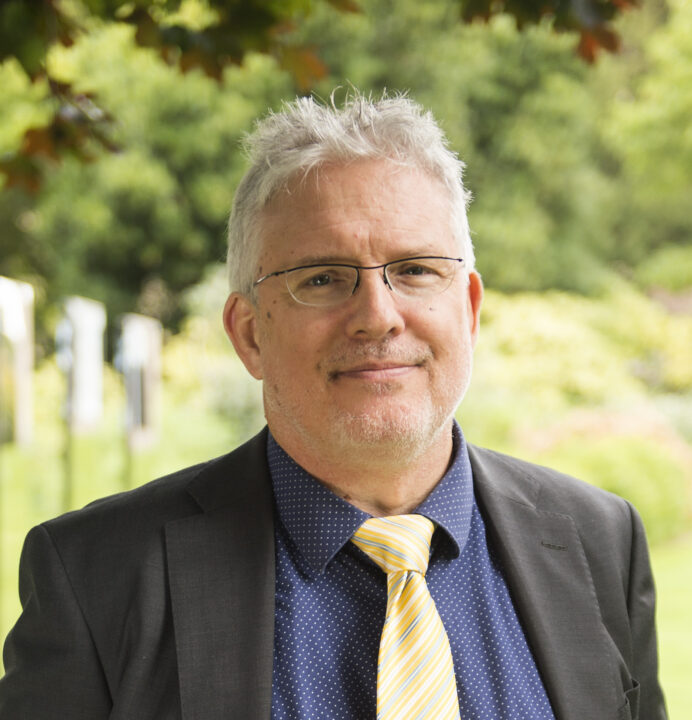 PsychologyAssociate Fellow
PsychologyAssociate FellowStephan Lewandowsky
Disinformation as a political tool – authenticity vs. factuality in the context of Northern Ireland
To profile
My project is focused on the role of misinformation and disinformation and different understandings of truth in an international context. My recent research has focused on the changing conceptions of “honesty”, particularly the populist rebranding of authenticity as honesty, whereby “speaking one’s mind” has become an indicator of “honesty” even if utterances are factually incorrect. In consequence, a serial misinformer such as Donald Trump, who according to fact checkers made more than 30,000 false or misleading statements during his presidency, can end up being considered honest by his followers (according to survey data, 75% of Republicans considered him to be honest). The acceptance of authenticity as a surrogate for truthfulness is incompatible with democratic political discourse, in which arguments are supported by appeals to evidence rather than feelings. I suggest that much of the recent turmoil in western democracies, particularly the U.S. and U.K., can be explained by considering the clash between a populist understanding of truth as “speaking one’s mind” and a democratic understanding that rests on evidence rather than momentary feelings. During my fellowship, I will extend this analysis to an international context, using the Northern Ireland Protocol, and the relationship between the U.K. and EU, as a case study. I will examine the political discourse in the UK and in the EU to see if linguistic markers for the two concepts of honesty are identifiable, and whether they differ between the UK and EU. My expectation is that the UK discourse vis-à-vis the Northern Ireland Protocol will be distinctly more populist than its counterpart in the EU. -

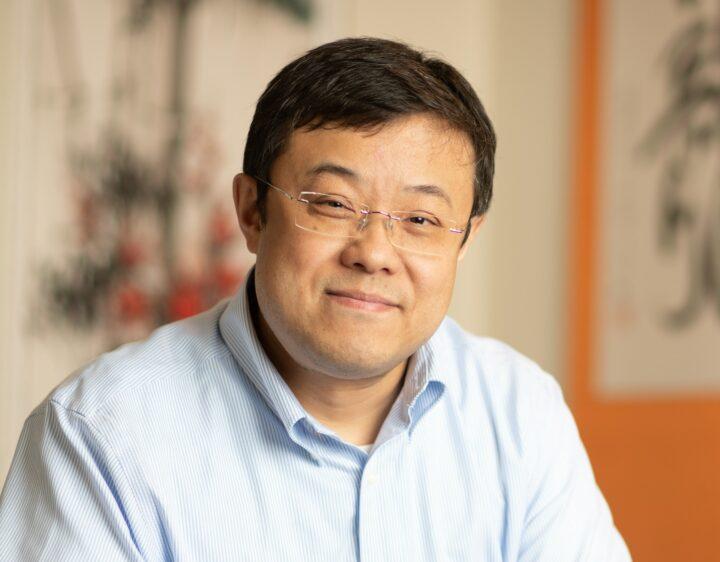 International RelationsAssociate Fellow
International RelationsAssociate FellowKai He
Discerning US-China Institutional Competition and International Order Transition
To profile
The world is in crisis. The Russian invasion of Ukraine in early 2022 marked a considerable military challenge from a resurgent Russia to the established international order of the 21st century. The conflict between Israel and Hamas, which began in October 2023, has further jeopardized global peace and stability. Despite these crises, U.S. policymakers still view China as “America’s most consequential geopolitical challenge” in the 21st century. The strategic competition between the United States and China has intensified since the COVID-19 pandemic. The continuous deterioration of U.S.-China relations may eventually lead the two nations into the “Thucydides trap,” a potential military conflict between the hegemon and a rising power in the international system.
While acknowledging the inherent dangers of war or military conflicts involving these two powers, this project argues that competition, when effectively managed, need not always result in negative outcomes. This premise holds true for the strategic competition between the U.S. and China. By systematically examining U.S.-China institutional competition across security, economic, and political domains, particularly in the aftermath of the 2008 global financial crisis (GFC), this book emphasizes the positive aspects of U.S.-China competition, encapsulated within the framework of institutional balancing.
These constructive dimensions manifest as three unintended positive consequences arising from U.S.-China competition: the revitalization of regional institutions to address emerging challenges, unexpected collaborations between major powers (the U.S. and China) and regional actors, and the provision of public goods by both the U.S. and China. These inadvertent benefits resulting from U.S.-China competition have the potential to enhance regional stability and promote a more peaceful transition of the international order within the Asia-Pacific and beyond. In essence, we are witnessing a novel form of international order transition, where interstate institutional competition contributes to peace during the transitional phase of the international order.
-

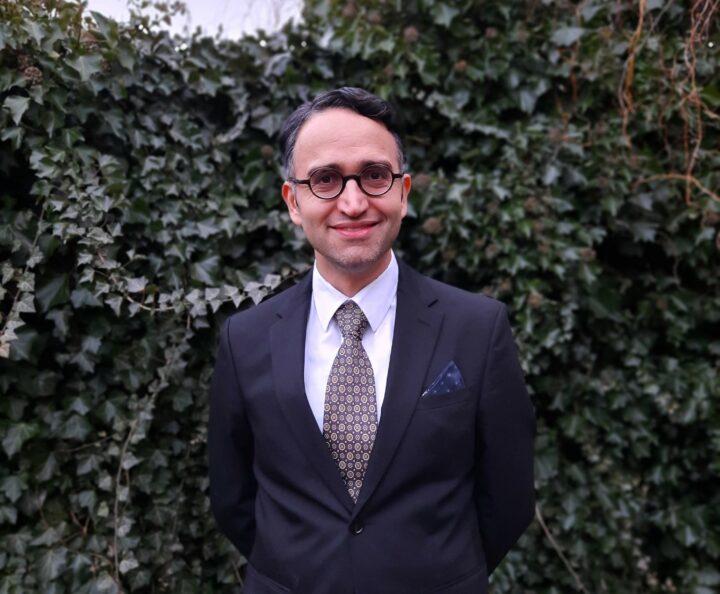 SociologyAssociate Fellow
SociologyAssociate FellowFarid Karimi
Pipeline politics in the time of war: Nord stream projects and the convergence of energy security dilemmas in the Baltic Sea Region
To profile
The Russian invasion of Ukraine changed the geopolitical situation in Europe and led to a grand shift in the EU’s energy policy. The EU appeared to be caught by surprise by Russia’s energy blackmail and its instrumental use of gas infrastructure since the outbreak of war. This is despite the fact that the development of Nord Stream 2 following the annexation of Ukrainian territories by Russia in 2014 meant to circumvent Ukraine as a transit state and make it more vulnerable to Russian influences. The development of Nord Stream 1 and 2 projects divided the EU and the Baltic Sea Region (BSR) and highlighted different priorities of the national energy policies. If the typical energy trilemma revolves around security of supply, equity, and sustainability, then the post-Soviet countries, such as Poland and the Baltic states, emphasised the security of supply and called for greater solidarity within the bloc while strongly opposing the construction of both Nord Stream pipelines. In contrast, the energy policy of Germany and, to some extent, Nordic countries was driven more by economic and sustainability dimensions, while they either supported the Nord Stream projects or remained neutral to them. In the aftermath of the war in Ukraine, the regional views on energy security and particularly on the security of supply are converging. However, what are the energy policy implications of this process? What lessons can be drawn from the Nord Stream 2 fiasco?
This research investigates the public discourses on the Nord Stream projects in three countries on the Baltic Sea coast: Germany, Latvia, and Finland. The ex-post analysis of the changing approaches to the project reveals the complexity of competing interests and agendas that now will struggle to realign – with all the policy effects on the domestic and regional energy transition agenda.
-

 Political ScienceAssociate Fellow
Political ScienceAssociate FellowNene-Lomotey Kuditchar
The Empirical Anatomy of Heterarchy in African Continentalism: A Theoretical Reset beyond Hierarchy
To profile
Studies on African continentalism, conventionally dominated by the ranked heuristic and analytical logic of hierarchy, often designate the (non)effects of the processes and institutions African unity as uninspiring, mediocre or outright failures and hence not progressive. Relatedly, African political actors/engineers generally perceived as lacking confidence, self-defined rationality, ideational anchors and ingenuity, tend to be primarily tagged as peripheral, agency-deprived dominated subjects in the world pecking order. The dominance of the cited stereotypes in epistemic communities has hampered the realisation that processes of African unification, being historically contingent efforts to rehabilitate and uplift the African human condition, are inherently valuable and worthy natural experiments in their own right and as such harbour the potential to enrich academic discourse, expand knowledge frontiers and inform the framing of innovative policies. Against this background this project, with the aid of heterarchy: an essentially non-hierarchical mode of thought that privileges unranked and multiplicities of ranked coordinated relationships or transactions, seeks to research the often-overlooked complex nuances of African continentalism. The project’s endeavour, notionally oriented by a solemn and sympathetic consideration of crude transactions, seeks to probe the (i) ideational structures, (ii) institutional configurations and sequential patterns and (iii) (informal)governance regimes of African continentalism. -

 MigrationAssociate Fellow
MigrationAssociate FellowGladys Dzansi
Influence of Digitalization on International Migration of Nurses from Low- and Middle-Income Countries (LMIC)
To profile
Global migration is a phenomenon driven by a complex interplay of economic, geographical, political, social, and environmental factors. In 2020, international migration involved an estimated 281 million individuals, constituting 3.6% of the world’s population. The advent of digitalization and the pervasive use of social media have significantly reshaped migration patterns, introducing both opportunities and challenges. While migration offers economic advantages, it also poses risks, with unethical recruitment networks often exploiting vulnerable individuals.
The migration of highly skilled professionals, particularly nurses, from Low and Middle-Income Countries (LMICs) to high-income countries is creating inequity mobility, making LMIC worse off. Notably, the International Centre on Nurse Migration (ICNM) predicts a significant shortage of health workers by 2030, with one in eight nurses being migrants. The COVID-19 pandemic has exacerbated this trend, driving even more nurses to seek opportunities abroad, often facilitated by the sharing of information through social media. However, the extent and impact of digitalization on this phenomenon remain inadequately understood. To address this gap, this research project proposes a scoping review that will thoroughly investigate the influence of social media and digital platforms on nurse migration. This research project is poised to contribute to the understanding of how digitalization influences nurse migration, with the aim of fostering the development of ethical migration policies and promoting international collaboration. These efforts are essential to address the ongoing issue of nurse shortages and ensure the well-being of healthcare systems worldwide.
-

 JournalismPolitical ScienceAssociate Fellow
JournalismPolitical ScienceAssociate FellowSzilárd Teczár
Transparency and Freedom of Information in the European Institutions – The Case of the Rule of Law Dialouge with Hungary
To profile
Szilárd Teczár’s research project focuses on the issue of transparency and access to information within the European institutions. The ongoing Rule of Law Dialouge between the EU institutions and the Hungarian government will be used as a case study.
Since the main actors in the procedures concerning Hungary – the ’Article 7’ procedure, the budget conditionality mechanism and the rule of law-based assessment of the Hungarian Recovery and Resilience Plan – are the European Commission and the Council of the EU, the project will primarily examine how these institutions fulfil the requirement of transparent decision-making and handle freedom of information requests. The project aims to analyze document disclosure practices and responses to freedom of information requests in order to generate insights for journalists and for the general public, and to test the functioning of the European legal framework on freedom of information in practice.
The different procedures against Hungary, triggered by alleged violations of the rule of law, can have profound implications for the integrity of the European Union. As they are connected to the disbursement of EU funds to Hungary, the procedures also hold an economic importance. But does the assessment of the state of the rule of law in Hungary itself correspond to the requirement of transparency? Is it possible to follow the exchanges between the Hungarian government and the EU isntitutions and obtain information about the considerations that lie behind important political and legal decisions? The research of Szilárd Teczár poses these very questions, and he aims for this project to become a practical guide for journalists and those seeking access to information possessed by the EU institutions.
-

 Political ScienceReligionAssociate Fellow
Political ScienceReligionAssociate FellowHüseyin Çiçek
Islam and Cold War. The Politicization of Islam during the 1950s in Kemalist-Secular and Islamic-Conservative Media
To profile
An analysis of the mutual entanglement of secular and religious political discourses in Turkey during the 1950s, set against the backdrop of the formative phase of the Cold War, is a desideratum in German research on Turkey. This is especially true considering the intra-Turkish discussions in weekly magazines such as AKIS, Yeni Ufuklar, Forum, and Sebilürreşad. From the very beginning, the Truman Doctrine, in its confrontation with the atheistic USSR, relied on the instrumentalization of “religion,” thereby stimulating a new political constellation in Turkey. As an ally of the capitalist West, the Kemalist containment of Islam in Turkey came under pressure, ultimately facilitating the emergence of a symbiotic fusion of Turkish Islam and Kemalism.
This research project examines relevant Kemalist-secular (AKIS, Yeni Ufuklar, Forum) and Islamic-conservative (Sebilürreşad) weekly magazines (as depicted in the graphic) to trace the changes in both the (personal) relationships and the arguments of their authors in the context of the global system rivalry of the 1950s. In doing so, it aims to contribute to a productive new focus in research on Turkey. Central to the analysis are the alliances between religiously conservative and secular weekly magazines that, during the 1950s Cold War era, constructed shared codifications of political belonging. This necessitated a renegotiation of the Turkish understanding of collective and identity consciousness against the backdrop of the tensions of global system competition. Only such a research focus, a fundamental thesis of the project posits, allows one to move beyond the dichotomy of Kemalism vs. Islamism and instead understand the history of coalition formations and political entanglements.
-

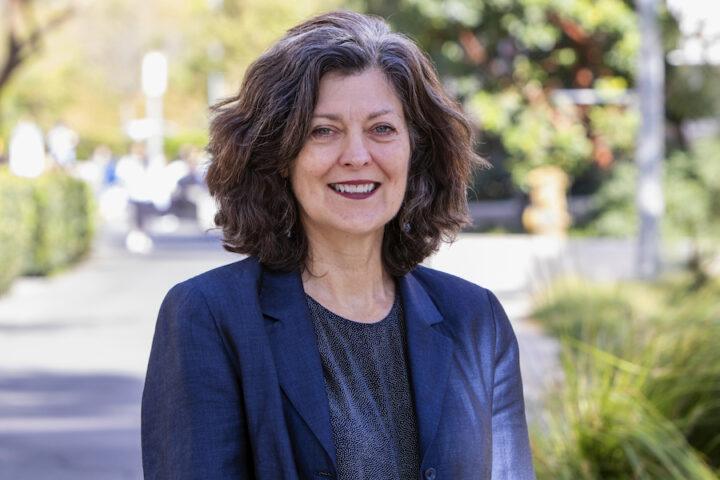 Political ScienceAssociate Fellow
Political ScienceAssociate FellowCecelia Lynch
Transnation Humanitarian Intersections Between Germany and Cameroon: Religion, Intersectionality, and Agency (with Nadine Machikou)
To profile
A major challenge for international politics is how to effectuate equitable aid relationships. Addressing this issue requires in-depth examinations of how people in postcolonial societies navigate colonial legacies and internal/external dynamics of transnational humanitarianism and interstate securitization, amidst intersectional identities and multiple crises (poverty, civil conflict, COVID-19). Conversely, it also requires examining whether and how officials and aid agencies in former colonizing countries see links between colonial legacies and contemporary aid relationships, and how they perceive agency in those relationships. Our project addresses these issues with a focus on relations between Germany and one of its former colonies, Cameroon. Our central research questions follow:
To what degree do transnational humanitarian practices help or hinder the survival of Cameroonians, and of Cameroon as a country?
What does it mean for Cameroonians to “survive together”?
By “together,” we do not refer to any notion of a homogeneous or unified state or people with a common purpose, but rather to the minimal fact of survival as citizens of the same country. Addressing this question requires examination of historical legacies of colonization as well as ongoing humanitarian relationships. It requires examination of how these legacies influence the everyday (bureaucracy, entrenched ethnic and religious divisions, displacement and violence from the Anglophone Crisis, Boko Haram, and climate change) in conjunction with the transnational: in other words, it requires examination of the quotidian processes, debates, struggles, and fears that mark the lives of Cameroonians of different genders, ages, religions, languages, regions, and ethnicities, vis-à-vis the transnational dynamics of aid and securitization. Our project builds on collaborative research we have done on several religious women’s groups in the country by engaging with perspectives from German aid agencies and nongovernmental organizations, using African feminist approaches to address a) gaps in theorizing about Cameroon as a “stationary state” and 2) promises by transnational agencies to “decolonize humanitarian aid.”
-

 Political ScienceAssociate Fellow
Political ScienceAssociate FellowNadine Machikou
Transnation Humanitarian Intersections Between Germany and Cameroon: Religion, Intersectionality, and Agency (with Cecelia Lynch)
To profile
A major challenge for international politics is how to effectuate equitable aid relationships. Addressing this issue requires in-depth examinations of how people in postcolonial societies navigate colonial legacies and internal/external dynamics of transnational humanitarianism and interstate securitization, amidst intersectional identities and multiple crises (poverty, civil conflict, COVID-19). Conversely, it also requires examining whether and how officials and aid agencies in former colonizing countries see links between colonial legacies and contemporary aid relationships, and how they perceive agency in those relationships. Our project addresses these issues with a focus on relations between Germany and one of its former colonies, Cameroon. Our central research questions follow:
To what degree do transnational humanitarian practices help or hinder the survival of Cameroonians, and of Cameroon as a country?
What does it mean for Cameroonians to “survive together”?
By “together,” we do not refer to any notion of a homogeneous or unified state or people with a common purpose, but rather to the minimal fact of survival as citizens of the same country. Addressing this question requires examination of historical legacies of colonization as well as ongoing humanitarian relationships. It requires examination of how these legacies influence the everyday (bureaucracy, entrenched ethnic and religious divisions, displacement and violence from the Anglophone Crisis, Boko Haram, and climate change) in conjunction with the transnational: in other words, it requires examination of the quotidian processes, debates, struggles, and fears that mark the lives of Cameroonians of different genders, ages, religions, languages, regions, and ethnicities, vis-à-vis the transnational dynamics of aid and securitization. Our project builds on collaborative research we have done on several religious women’s groups in the country by engaging with perspectives from German aid agencies and nongovernmental organizations, using African feminist approaches to address a) gaps in theorizing about Cameroon as a “stationary state” and 2) promises by transnational agencies to “decolonize humanitarian aid.”
-

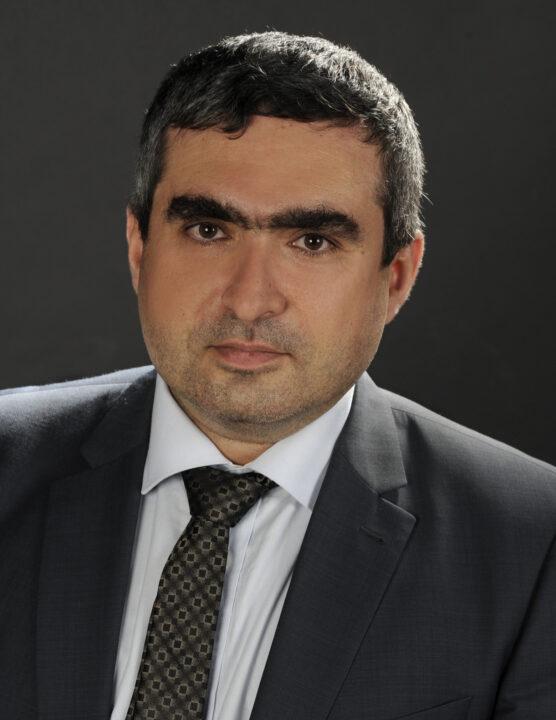 Political ScienceAssociate Fellow
Political ScienceAssociate FellowDmytro Shevchenko
Crimea Scenarios for the Sustainable and Secure Future of the Black Sea Region
To profile
The international security architecture can be divided into the time before Crimean crisis 2014 and after it. Current war in Ukraine is just the aftermath of the process which the Kremlin has begun with the annexation of Crimea. And if the world and Europe want to restore, restart or reshape the security architecture of the continent, they will surely need to solve the problem of the status of Crimea, so that it meets the requirements of the international law, the expectations of the key players of the region and fulfil the legitimate aspirations of the local population of the peninsula.
There are two main preconditions for the realization of any Crimean strategy: 1) regime change in Russia, where the Kremlin would be ready for compromises, and 2) readiness of other regional players, first of all, Ukraine and Turkey, to use the weakness of Russia not to strengthen their own national positions on the peninsula, but instead to create a long term basis for peace and cooperation. Both preconditions are more than realistic at some point in the future, so we must be well prepared.
During my research at the AIA fellowship I will compare territorial conflicts in Europe, which are more or less similar to the Crimean crisis, and deliver a toolkit of possible solutions, how they were successfully or not successfully used in the European history, so the instrumentarium for further discussions on the future of the Crimea. Further, on the basis of these cases, I will try to propose the most effective variant of the administrative system in the Crimea, which would allow a sustainable and peaceful development of the region at least for the decades to come.
-

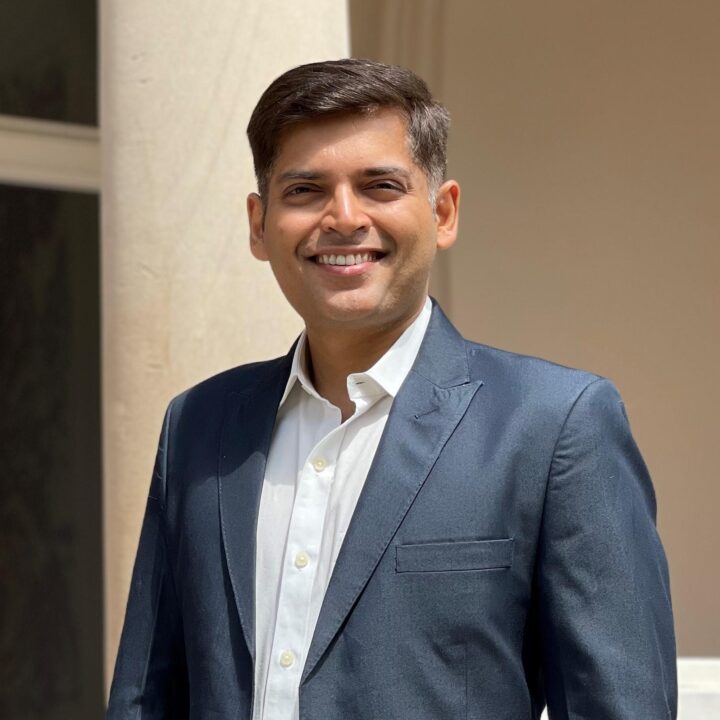 Subnational DiplomacyAssociate Fellow
Subnational DiplomacyAssociate FellowVivek Anand
Unveiling the Dynamics of Economic Paradiplomacy: Exploring Trends and Identifying Best Practices
To profile
Economic paradiplomacy refers to the pursuit of economic interests by sub-national actors, such as states and cities, outside the framework of national foreign policy. Globalization and the decentralization of economic power have created a dynamic landscape where these entities actively engage internationally. From promoting trade to cultural exchanges, from climate advocacy to soliciting foreign investments, sub-national entities, including non-government institutions like chambers of commerce and industry, are pursuing diplomatic objectives that echo their unique competencies and priorities. Despite the meteoric rise and the growing sophistication of such initiatives, scholars often regard paradiplomacy as experimental and, hence, inconsequential. There is a need to look beyond the lens of classical statecraft and conventional diplomacy frameworks and recognize paradiplomacy as an influential force in contemporary international relations.
Mr. Anand’s project assumes the mantle of inquisitive scholarship, seeking to delve into the intricate dynamics of paradiplomacy to discern the trends that shape this paradigm, and unearth the best practices employed by subnational actors across the globe – including, but not limited to foreign representations, multilateral arrangements, and state/city partnerships among others. The endeavor aims to develop a template to comprehensively examine paradiplomatic initiatives in terms of purpose, stakeholders, institutionalization processes, and implications in the domains of trade, innovation, skill development, and sustainability – four pillars supporting the socio-economic tapestry of nations. By analyzing case studies, scrutinizing policy frameworks, and engaging with the community of scholars and expert practitioners, this study of paradiplomacy will gain insights into the motivations, strategies, and collaborative endeavors between sub-national actors.
The goal is to weave together a nuanced discourse and present an actionable roadmap to policymakers, practitioners, and academic researchers alike, for leveraging the immense potential of paradiplomacy to foster economic growth, technological prowess, human capital development, and environmental stewardship on a global scale.
-

 International RelationsAssociate Fellow
International RelationsAssociate FellowJuris Pupčenoks
Responding to Russian Strategic Narratives and Disinformation in East Europe
To profile
This project will investigate to what extent diplomatic rhetoric influences states’ behavior and evaluate how certain Eastern European states respond to narratives of a regional hegemon. More specifically, it will first look at how Russian strategic narratives (or strategic rhetoric that countries use to frame their positions and interests in attempts to influence both publics at home and audiences abroad) towards Ukraine, Latvia and Moldova have evolved from the mid-2000s to the present. Next, it will investigate how these smaller countries have engaged with Russian narratives and disinformation in them. Smaller countries have limited kinetic capabilities to resist or threaten regional powers, but they can coordinate their own strategic narratives and counter-messaging. There is potential for such information warfare operations to be an equalizing force. A better understanding of how Russia uses diplomatic language to target smaller countries and spread disinformation will also help with coming up with strategies on how to counter such propaganda more effectively. Additionally, by looking at how other countries have responded to Russian rhetoric will lead to better understanding of what strategies can be successful (or not) in countering authoritarian country information operations. This project will be guided by the following research questions:
What are the Russian SNs towards Ukraine, Latvia and Moldova?
What role does disinformation play in such narratives?
Are changes in Russian narratives linked to important kinetic or socio-political developments?
How have these three smaller countries responded to Russian narratives towards them? What lessons can the rest of us draw from such responses?
-

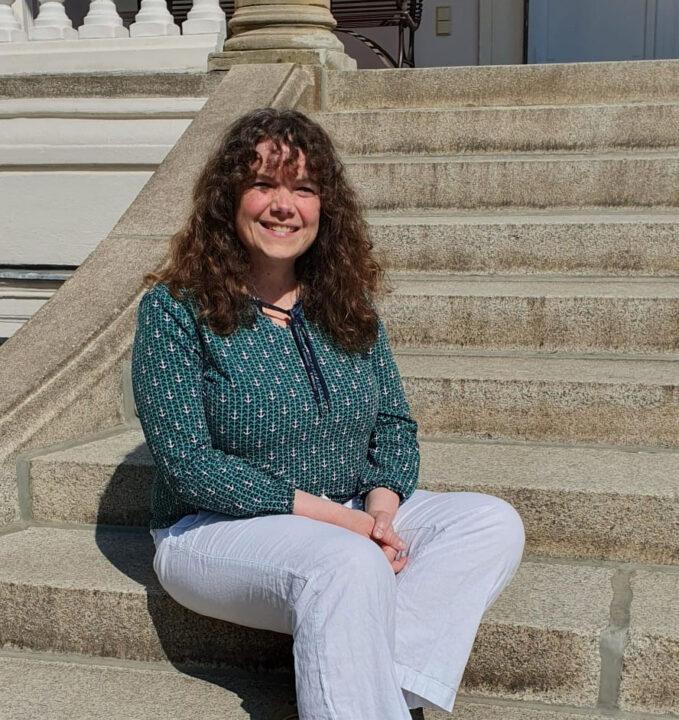 International RelationsAssociate Fellow
International RelationsAssociate FellowKatharina McLarren
Religion in International Institutions in Times of War
To profile
When studying religion in war and conflicts, the focus is mostly either on its potential to escalate or to pacify the situation. However, the role of religion during war at the international and transnational levels has so far been neglected, even though religion is represented in international organisations. The Ukraine War has seen strongly diverging roles of religions since Russia first launched attacks on 24 February 2022. While Patriarch Kirill, head of the Russian Orthodox Church, presented the Russian National Guard with an icon to inspire young soldiers when defending their fatherland, Pope Francis, head of the Roman Catholic Church criticized the United Nations as being impotent in the Ukraine War. These two examples alone indicate the diverging stances religion can assume in the face of war, ranging from legitimizing acts of aggression to appealing to the international community to re-visit questions of responsibility and the ability to act. In other words, these examples reveal that religion can both strengthen as well as weaken the international order and institutions such as international law, diplomacy, or sovereignty. The first aim is to collect empirical data as to how (transnational) religious actors position themselves at the outbreak and during the course of war in a selection of cases. The second aim is to theorize on the role of religion in international, transnational, and world society, thereby further developing English School approaches to the evolution of institutions.